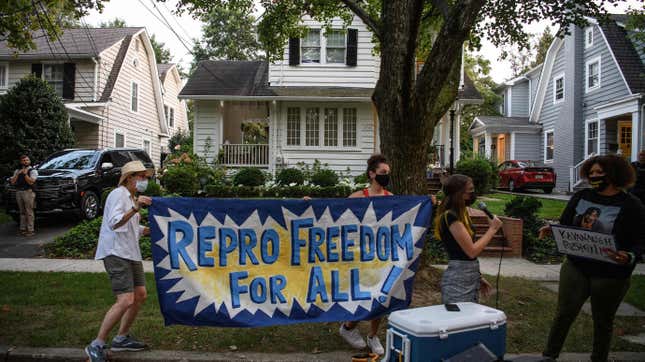Wow, Not Many Americans Want to See Roe v. Wade Overturned
It turns out the vast majority of voters would appreciate having access to abortion
AbortionPolitics

The Supreme Court will take up an abortion rights case on December 1 that would give them an opportunity to directly overturn Roe v. Wade, the landmark 1973 decision that protects the right to abortion until viability. But doing so would be quite unpopular with Americans. According to the results of three recent polls conducted over the past few weeks—as reproductive rights crumble in Texas—fewer than one-third of Americans would like to see Roe v. Wade overturned.
-

-

-

-

-

-

-

-

-

-

-

-

-

-

-

-

-

-

-

-

-

-

-

-

-

-

-

-

-

-

-

-

-

-

-

-

-

-

-

-








































